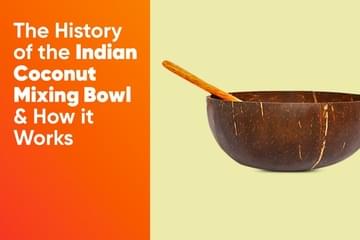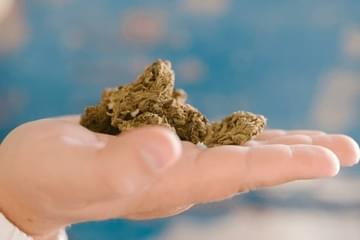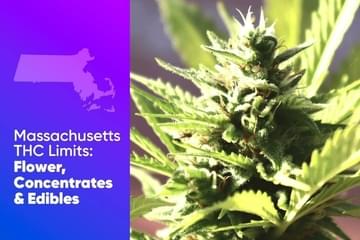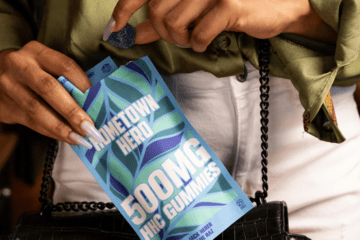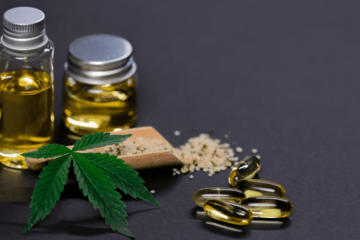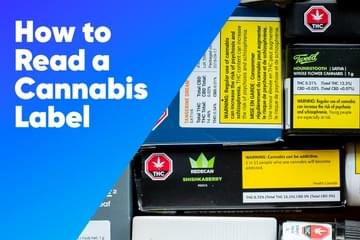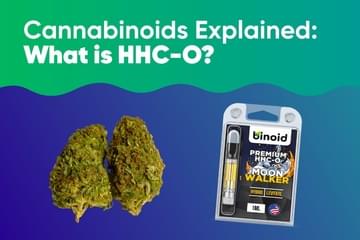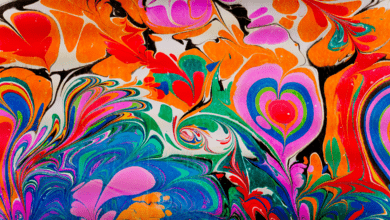
The Comprehensive History of Psychedelics
Published on 9/11/21
Marijuana has made major progress on its journey toward full legalization over the last decade, and now psychedelics are also making some headway. Over the last few years, several states have either decriminalized or straight-up legalized certain psychedelics. A lot has changed about public perception toward psychedelic drugs along with these new policies, so let's take a look at the history of psychedelics, what they are and what their future may be.
What are Psychedelic Drugs?
Also known as hallucinogens, psychedelics are a type of substance that alters sensory perception and cognitive processes. If you look at all possible effects within a psychedelics' meaning, they can also alter mood and energy levels. Many different types of psychedelics range from synthetic chemicals to naturally occurring plants. Here are some of the more common psychedelic drugs:
- LSD (lysergic acid diethylamide): also known as acid, is a synthetic chemical created from the ergot fungus.
- DMT (dimethyltryptamine): a naturally occurring substance found in certain bark and nuts from South America.
- Psilocybin: also known as magic mushrooms, is a naturally occurring substance found throughout the world in certain types of fungi.
- Ecstasy: also known as MDMA (methylenedioxymethamphetamine), is a synthetic psychedelic drug similar in structure to amphetamine.
- Mescaline: a naturally occurring substance found in certain types of cacti, the most well-known being the peyote cactus.
The History of Psychedelics
 Unsplash
UnsplashPsychedelics have been used for thousands of years, with some evidence pointing to the first use by ancient Algerian civilizations over 7,000 to 10,000 years ago. A mural in the Sahara desert depicts a "mushroom man" with shrooms sprouting out from all over his body. This is one of many ancient depictions of psychedelics being used in spiritual/ritualistic ways. Sanskrit texts that are part of the foundational elements of Hinduism potentially mention psychedelic mushrooms and peyote is thought to have been widely used by Native Americans. Throughout history, these naturally occurring drugs have been foundational in spirituality and religion, especially in ancient civilizations and non-western cultures.
Psychedelics in the 50s & 60s
It wasn't until the 1940s that psychedelics began to gain relevance in Western cultures. Swiss chemist Albert Hofmann accidentally discovered LSD in 1938, then again accidentally ingested it in 1943. When he tripped, he immediately realized the psychotherapeutic potential of the substance. He began to send samples of his newfound drug, along with psilocybin, to universities and medical professionals to study the potential benefits of psychedelics as therapeutic instruments. In 1957, LIFE Magazine released an article about pilgrimages being taken from the US to remote areas of Mexico to consume psychedelic "magic mushrooms." These mushrooms were studied and the active psychedelic ingredient, psilocybin, was isolated by Hofmann. It was soon the most popular drug in the 1960s counterculture movement.
At the same time, Dr. Timothy Leary, a professor at Harvard University, was sent psychedelics in 1960 and immediately began the Harvard Psilocybin Project since they were not yet illegal in the United States. The project, like many of the studies over the last two decades, had very positive results, but the program was shut down and Leary fired when the school found out he'd been giving the substances to his students. After this, Leary began to encourage the use of LSD, and along with other activists during a time of civil unrest, the drug was immediately folded into the increasingly relevant hippie countercultures of the time. Because of its association with counter culture and increasing recreational use, LSD was made illegal in the United States in 1966. Four years later, the War on Drugs was started with the passing of the Controlled Substances Act of 1970, which officially banned LSD, magic mushrooms, and other drugs like marijuana. If you're wondering "is marijuana a psychedelic," it is not. But it has been in the same classification of drugs for dozens of years.
The Modern Resurgence of Psychedelics
 Unsplash
UnsplashMDMA was next to hit the scene when chemist Alexander Shulgin discovered its psychedelic effects and distributed it amongst the underground psychotherapeutic scene (which was still strong in certain parts of the country, despite its illegality). It was also soon being distributed as a common recreational drug and was banned by the FDA, classified as a Schedule I drug with no medical uses and considered highly addictive. Like LSD, all studies were shut down. Since then, from the 1980s to the present, psychedelics have maintained steady underground therapeutic and have been recreationally used in waves as trends ebb and flow.
In more recent years, there has been a resurgence of legitimate studies into the potential benefits of various psychedelics, primarily LSD and psilocybin. These studies are finding that psilocybin helps relieve major depression (there have been promising ties between psychedelics and depression since the earliest studies), can be used in therapeutic settings to great effect, and may have other potential applications. Psychedelics and PTSD, along with anxiety and other disorders also show promise. Along with promising scientific findings, its legal status has also begun to change. Denver became the first governing body to decriminalize psilocybin in 2019. Then, in November 2020, Oregon decriminalized all drugs with their Drug Decriminalization and Addiction Treatment Initiative. Under this new legislation, a state-funded psilocybin medical program was created. While Oregon is the first state to do this, several cities in California, Washington, D.C., and Michigan have laws that decriminalize the possession and use of certain natural psychedelics. It looks promising that, for the first time in over 70 years, change in the way America studies, considers and uses medicinally beneficial drugs are being instigated. Over the next few years, we may see legal psychedelics and promising psychotherapeutic programs become increasingly popular.
Let us know what your take on psychedelics is and whether or not you're a proponent of legalizing them at the state and/or federal level. Comment below!









